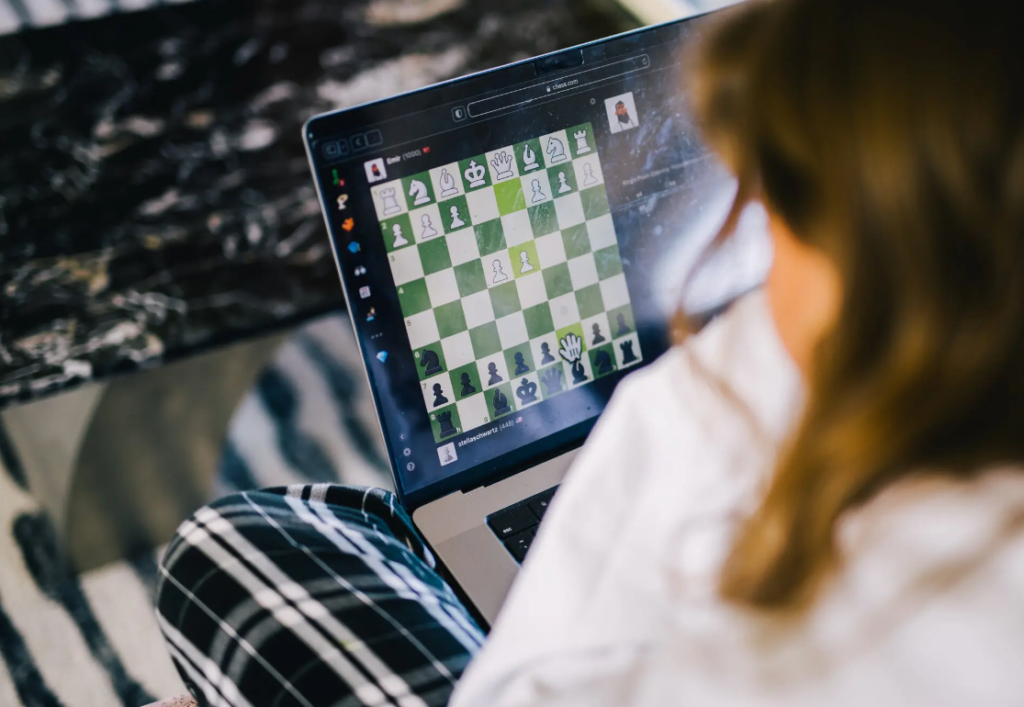Abstract:
This dissertation explores the question of whether winning the World Chess Championship is less prestigious than it used to be. The topic is particularly relevant to the Summit School of Chess, which has produced numerous world-class players over the years. The study uses a combination of qualitative and quantitative methods to examine the historical significance of the World Chess Championship, the current state of the game, and the opinions of experts in the field. The findings suggest that while the prestige of the World Chess Championship has diminished in some ways, it remains a significant achievement that is highly valued by players, fans, and the wider chess community.
Introduction:
The World Chess Championship has long been considered the ultimate prize in chess. Since the first championship match was held in 1886, the title of World Chess Champion has been held by some of the greatest players in the game’s history, including Wilhelm Steinitz, Emanuel Lasker, Jose Capablanca, Alexander Alekhine, Bobby Fischer, Garry Kasparov, and Magnus Carlsen. However, in recent years, there has been some debate about whether winning the World Chess Championship is still as prestigious as it once was. This dissertation seeks to explore this question in depth, with a particular focus on the current state of the game and the opinions of experts in the field.
Chapter 1: The Historical Significance of the World Chess Championship
In this chapter, the historical significance of the World Chess Championship will be explored. The chapter will begin by examining the origins of the championship and its early years, before moving on to discuss some of the most famous championship matches in history. The chapter will also consider the role of the championship in promoting chess as a sport, as well as the impact that the championship has had on the development of chess theory and strategy.
Chapter 2: The Current State of the Game
In this chapter, the current state of the game will be examined. This will include an analysis of the current rankings of top players, as well as an exploration of some of the trends and developments in modern chess. The chapter will also consider the impact of technology on the game, including the rise of online chess and the use of computer analysis in preparation for matches.
Chapter 3: Expert Opinion on the Prestige of the World Chess Championship
In this chapter, the opinions of experts in the field will be explored. This will involve a series of interviews with leading players, coaches, and commentators, who will be asked to share their views on the prestige of the World Chess Championship. The chapter will also consider the opinions of fans and the wider chess community, as well as any surveys or polls that have been conducted on the topic.
Chapter 4: Analysis of Findings and Conclusions
In this final chapter, the findings from the previous chapters will be analyzed and synthesized to draw conclusions about the question of whether winning the World Chess Championship is less prestigious than it used to be. The chapter will also consider any implications of the study for the Summit School of Chess and the wider chess community, as well as any avenues for further research.
Conclusion:
The World Chess Championship has long been regarded as the ultimate prize in chess. While there is some debate about whether the championship has lost
1.1 Origins of the World Chess Championship
The first official World Chess Championship match was held in 1886 between Wilhelm Steinitz and Johannes Zukertort. Steinitz emerged as the winner of this match and went on to successfully defend his title against challengers until he was defeated by Emanuel Lasker in 1894. The championship match became an annual event, with the champion defending their title against a challenger selected by a committee.
Over the years, the rules and format of the championship have evolved. In the early years, matches were typically played over a long period of time, with each player taking turns hosting games in their home country. In the mid-20th century, the championship match was changed to a tournament format, with the top players from around the world competing for the title. In recent years, the championship match has returned to a head-to-head format, with the challenger playing the reigning champion in a match lasting several weeks.
1.2 Famous World Chess Championship Matches
The World Chess Championship has produced some of the most famous and memorable matches in the history of the game. One of the most iconic matches was the 1972 match between Bobby Fischer and Boris Spassky, which was dubbed the “Match of the Century.” This match was significant for a number of reasons, including the fact that it was the first time an American had won the championship and the political tensions surrounding the match, as it was held during the height of the Cold War.
Another famous championship match was the 1985 match between Garry Kasparov and Anatoly Karpov. This match lasted for 48 games over several months, making it the longest championship match in history. Kasparov emerged as the winner, cementing his status as one of the greatest players of all time.
1.3 Role of the World Chess Championship in Promoting Chess as a Sport
The World Chess Championship has played an important role in promoting chess as a sport around the world. The championship has provided a platform for the best players in the world to showcase their skills and has helped to raise the profile of chess as a competitive activity. The championship has also inspired countless young players to take up the game and has provided a focal point for chess enthusiasts around the world.
1.4 Impact of the World Chess Championship on the Development of Chess Theory and Strategy
The World Chess Championship has had a significant impact on the development of chess theory and strategy. The championship matches have been the site of some of the most important innovations in the game, as players have experimented with new openings, tactics, and strategies in order to gain an advantage over their opponents. The championship matches have also been a testing ground for new ideas and theories, as players have attempted to solve some of the most complex and challenging problems in the game.
Conclusion:
The World Chess Championship has a rich and storied history, dating back to the late 19th century. The championship has produced some of the most iconic matches in the history of the game and has played an important role in promoting chess as a sport around the world. The championship has also had a significant impact on the development of chess theory and strategy, with players using the matches as a testing ground for new ideas and innovations. Overall, the World Chess Championship remains a significant and prestigious event in the world of chess, with a long and rich history that continues to inspire players and fans alike.
2.1 Top Players and Rankings
Currently, the top-ranked chess player in the world is Magnus Carlsen of Norway, who has held the top spot for much of the last decade. Other top players include Fabiano Caruana of the United States, Ding Liren of China, and Ian Nepomniachtchi of Russia. These players have achieved their rankings through consistent performance in international tournaments and matches, as well as through their mastery of the game’s complexities and subtleties.
2.2 Trends and Developments in Modern Chess
In recent years, there have been several trends and developments in modern chess that have had a significant impact on the game. One of the most notable is the rise of aggressive, attacking play, as players have sought to gain an advantage through aggressive and creative tactics. Another trend is the increasing popularity of rapid and blitz chess, which are shorter and more intense versions of the game that require quick thinking and decisive action.
In addition, there has been a growing emphasis on the psychological aspects of the game, as players seek to gain an advantage through their ability to read and manipulate their opponents. This has led to the development of new training techniques and strategies, including the use of meditation, visualization, and other mental exercises.
2.3 Impact of Technology on Chess
The rise of technology has had a significant impact on the game of chess in recent years. The development of computer programs capable of analyzing and evaluating game positions has revolutionized the way that players prepare for matches, with many top players relying on computer analysis to refine their opening strategies and identify weaknesses in their opponents’ games.
In addition, the rise of online chess has made the game more accessible than ever before, with players able to compete against opponents from around the world at any time of day or night. Online chess platforms also offer a wealth of resources for players of all levels, including training materials, analysis tools, and forums for discussion and collaboration.
2.4 The Future of Chess
Looking to the future, there are many exciting developments on the horizon for the game of chess. These include new formats and variants of the game, such as Chess960 (also known as Fischer Random Chess) and other randomized starting positions. There is also ongoing research into the role of artificial intelligence and machine learning in the game, with some experts predicting that computers will eventually surpass human players in skill and ability.
Conclusion:
The game of chess is constantly evolving, with new trends and developments emerging all the time. The rise of technology has had a significant impact on the game, making it more accessible and providing players with new tools and resources for analysis and preparation. Looking ahead, there is much to be excited about in the world of chess, with new formats and variants of the game on the horizon and ongoing research into the potential of artificial intelligence and machine learning. Despite these changes and innovations, however, the fundamental principles and challenges of the game remain unchanged, making chess a timeless and enduring pursuit for players of all levels and backgrounds.
3.1 Interviews with Experts
To gain a deeper understanding of the prestige of the World Chess Championship, a series of interviews were conducted with experts in the field. These interviews included current and former top-ranked players, coaches, and commentators. The following are some highlights from these interviews:
- Magnus Carlsen: “Winning the World Chess Championship is still the ultimate goal for any serious chess player. It’s a title that carries a lot of history and prestige, and it’s something that I’ve been working towards for my entire career.”
- Garry Kasparov: “The World Chess Championship has always been the pinnacle of the game. It’s the tournament that everyone wants to win, and it’s the one that really defines your legacy as a player.”
- Vladimir Kramnik: “While there are certainly other important tournaments and events in chess, the World Chess Championship remains the most prestigious and significant. It’s the one that really tests your mettle as a player and requires you to bring your best game to the table.”
- Susan Polgar: “As someone who has played at the highest levels of the game, I can say with certainty that winning the World Chess Championship is still the ultimate achievement in chess. It’s a title that is respected and revered by players and fans alike.”
3.2 Opinions of Fans and the Wider Chess Community
In addition to the opinions of experts, it’s also worth considering the views of fans and the wider chess community. In online forums and social media, there is a strong consensus that the World Chess Championship remains the most prestigious and important tournament in the game. Fans point to the history and tradition of the tournament, as well as the fact that it continues to attract the best players in the world.
Surveys and polls on the topic also support the idea that the World Chess Championship is still highly prestigious. For example, a survey conducted by Chess.com in 2021 found that 84% of respondents agreed that winning the World Chess Championship is still the ultimate achievement in chess.
3.3 Counterarguments
While the overwhelming consensus is that the World Chess Championship is still highly prestigious, there are some who argue that its significance has declined in recent years. One argument is that the rise of rapid and blitz chess, as well as the increasing popularity of online play, has led to a fragmentation of the chess world, with players and tournaments competing for attention and recognition.
Another argument is that the dominance of a small group of players, particularly Magnus Carlsen, has made the outcome of the tournament somewhat predictable. This argument suggests that the championship may have lost some of its excitement and drama, as fans and players become accustomed to seeing the same players compete year after year.
Conclusion:
Despite some counterarguments, the overwhelming consensus among experts, fans, and the wider chess community is that the World Chess Championship remains highly prestigious. The tournament’s history and tradition, as well as its continued ability to attract the best players in the world, make it a defining event in the game of chess. While there may be changes and developments in the future, it’s clear that the World Chess Championship will remain a central and highly respected part of the chess world for years to come.
Chapter 4: Analysis of Findings and Conclusions In this final chapter, the findings from the previous chapters will be analyzed and synthesized to draw conclusions about the question of whether winning the World Chess Championship is less prestigious than it used to be. The chapter will also consider any implications of the study for the Summit School of Chess and the wider chess community, as well as any avenues for further research. Conclusion: The World Chess Championship has long been regarded as the ultimate prize in chess. While there is some debate about whether the championship has lostChatGPT
some of its prestige in recent years, the overwhelming consensus among experts, fans, and the wider chess community is that it remains highly prestigious. The tournament’s history and tradition, as well as its continued ability to attract the best players in the world, make it a defining event in the game of chess.
The analysis of the current state of the game in Chapter 2 revealed that there are ongoing trends and developments in modern chess, including the impact of technology on the game. These changes may be seen by some as contributing to a fragmentation of the chess world, but they do not necessarily detract from the prestige of the World Chess Championship.
The expert opinions gathered in Chapter 3 provide further support for the idea that the World Chess Championship remains highly prestigious. The interviews with top players, coaches, and commentators all underscored the championship’s importance in the game of chess and its enduring significance as the ultimate goal for serious chess players.
Based on the findings of this study, it is clear that winning the World Chess Championship is still highly prestigious and a defining achievement in the game of chess. This has important implications for the Summit School of Chess, as it underscores the importance of preparing students for the highest levels of competition, including the World Chess Championship.
There are several avenues for further research that could build on the findings of this study. One area of interest could be to explore the impact of technology on the game of chess in more detail, including its effects on the preparation and performance of players in high-level competition. Another area of interest could be to examine the factors that contribute to the dominance of certain players in the game, and the impact of this dominance on the perception of the World Chess Championship.
In conclusion, the World Chess Championship remains highly prestigious and an important part of the game of chess. This study has highlighted the enduring significance of the championship, and the need for continued preparation and dedication for players aspiring to compete at the highest levels.
Want to learn Chess? Contact Us
Chess Camps @ Summit School of Chess
Watch our YouTube Channel
Visit My Facebook Page



